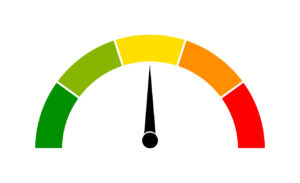PR pros need more than political correctness to survive
Major shake-ups in newsrooms, along with promises of more diversity and sensitivity, signal major changes for the PR industry.

If sunlight is the best disinfectant, then the wave of apologies and firings in the media should be great news for the public and the pursuit of truth.
The changes in leadership positions at The New York Times, Refinery29, Philadelphia Inquirer, Bon Appetit and others, along with promises of more diversity and sensitivity in journalism, also signal major changes for the public relations industry.
The backlash against racist headlines and jokes, editorials promoting views that advocate violence towards protesters, along with the anger and shame regarding discriminatory hiring practices, gained unstoppable momentum after the nationwide protests these past months.
The media has changed for good, and for the common good.
But for PR practitioners, the transformations will be greater for the messages rather than the messengers, and here’s why.
It’s well known in the PR industry that it’s usually easier to pitch a story when a woman or a person of color is being profiled or quoted. This is especially true for business publications who don’t want the perception to be that they only interview white men. Producers, reporters and editors publicly proclaim the need for more diverse sources. As a former journalist (Forbes contributor, Hearst newspapers reporter and freelance reporter for Newsweek and the Los Angeles Times) I’ve experienced this trend for at least 20 years.
Here’s the real difference this time, and why the discourse has changed forever. New leadership, and new rules for detecting B.S.
CNN notes that “The media industry is at another inflection point. In the way the ‘Me Too’ movement reshaped newsrooms, sparked debate, and purged bad actors from positions of authority, the Black Lives Matter movement is bringing about a similar upheaval by putting questions about race and reporting on the center stage.”
Ezra Klein of Vox says, “The media has changed, dramatically, because the world has changed dramatically.”
New Orleans Saints quarterback Drew Brees discovered this the hard way. Brees said he wouldn’t support the peaceful protest of taking a knee during the national anthem because he felt it was “disrespecting the flag.” His argument, while flawed, was widely accepted by the media, much of it led by white men in their 50s, 60s and 70s. After a media firestorm and the scorn heaped upon him by fellow athletes (including his own teammates) Brees sincerely apologized the next day.
Some brands and companies have quickly accepted the new reality. NASCAR recently banned the Confederate flag at all their events effective immediately, correctly noting the old arguments about the flag representing “state’s rights” instead of slavery and treason were antiquated and divisive.
New leadership is rapidly emerging in the media that will navigate more enlightened conversations and viewpoints.
“Millennials are now the largest generation, and they are far more diverse and liberal than the generations that preceded them,” Klein says. “The oldest millennials are now 40, the youngest 26 — which means they increasingly dominate workplaces, and they are a customer base any healthy business needs. In newsrooms, specifically, they are now numerous enough, senior enough, and powerful enough to make their views heard. And their views on which ideas go into which spheres are different from the generation that preceded them.”
The new landscape requires more than well-written platitudes of opposing racism and promoting diversity. Billions of messages, written by PR pros on behalf of corporate CEOs, university presidents and small company owners, magically zoomed into our inboxes during a brief two-day window between June 4-6.
Making a real impact, and promoting a client or a cause, will take more than political correctness. Communications professionals pitching the previous conventional wisdom and offering arguments such as “both sides” along with the resultant false equivalencies, will find themselves marginalized.
New arguments about race, gender, politics, income inequality, police tactics, politics and the military are here to stay. PR pros who acknowledge these realities will improve their chances of joining and shaping the conversation for years to come.
Remember the old saying that everybody talks about the weather, but nobody does anything about it?
Take a look outside. The storm is already here.
Robert Wynne is the author of “Straight Talk About Public Relations” and the owner of Wynne Communications based in Redondo Beach, California.






